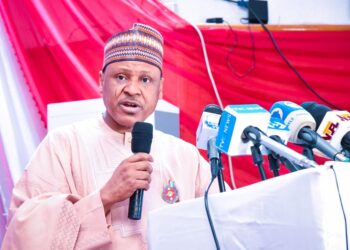By Bode Olagoke
Abuja
The All Progressives Congress (APC) has said what was needed to effectively tackle the Boko Haram menace “is new and imaginative thinking, instead of sticking to the same old way of doing things, which is what the federal government’s $1 billion loan request represents. “
In a statement issued yesterday in Abuja by its National Publicity Secretary, Alhaji Lai Mohammed, the party said while no reasonable person would argue against procuring modern weapons and other needs for the military, “it is absolutely important to complement the military campaign against Boko Haram with political, social and economic measures, especially because a sustained military campaign dating back to 2009 has failed to end the crisis.”
The statement said: “Between 2010 and 2014, a total of $14 billion has been allocated for defence, security and the police. This year alone, the total sum is $4 billion. Now, if $14 billion has not clipped the wings of Boko Haram in five years, what difference can $1 billion make if thrown into the crisis in the same old way?
“If the federal government has not accounted for how it spent $14 billion allocated to the security, defence and police in the past five years, why should it be given the green light to borrow another $1 billion? If the said $14 billion has not done much in upgrading military and security facilities in five years, what impact can $1 billion suddenly make? These are some of the questions we want the National Assembly to ask before giving the federal government the go-ahead to plunge Nigeria into another round of external debts.
‘”Talking of new and imaginative thinking, it is generally agreed that the root causes of the Boko Haram crisis are deep in the years of bad governance that have created an army of unemployed youth in the North-east, which is the epicentre of the crisis; the years of bad governance that have meant many that millions of youth are uneducated and unemployable; and the years of bad governance that have resulted in dilapidated infrastructure, lack of social amenities, inadequate schools and a total disconnect between the government and the governed.”



